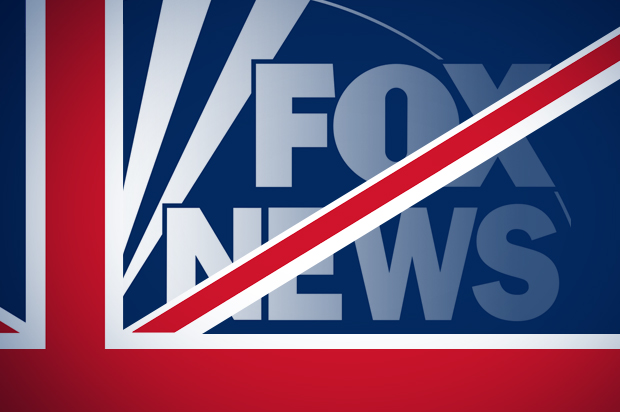The Democratic National Committee’s decision not to allow Fox News to host any of its 2020 presidential debates is wrongheaded.
Democrats need to try to win the millions of Americans who trust Fox News. There’s no way to create a society consistent with the liberal values of free speech and tolerance if you vilify those with whom you disagree.
But this strategic argument for the DNC reversing course on Fox News is actually less important than other considerations, and deserves the least attention.
As the results of the 2016 election made grotesquely clear, a Democrat can win the popular vote and still lose the election. In large part, this is because there’s a vast section of Middle America Democrats simply are not speaking to. Of course it’s true that the majority of Fox News viewers would never support a Democratic nominee, but a majority isn’t everybody. There are also millions of Fox News viewers who count themselves among the “undecided” voters, who are at least plausibly open to alternative points of view before casting their ballot. One can never be sure how these voters will encounter the different candidates or what basis they’ll use to decide. Any forum that can reach millions and doesn’t offend common sense (more on that in a moment) should be considered.
There’s also an ethical reason for holding a Democratic debate on Fox News.
As Dwight Eisenhower famously put it, “In a democracy, debate is the breath of life.” Fox News has not shied away from hosting voices of the left on-air and reaching out to outlets like Salon. Hosts like Bret Baier, Dana Perino and Tucker Carlson of Fox News, Andrew Napolitano of Fox Nation and Trish Regan of Fox Business Network have all recently spoken to Salon. (Specifically, they’ve talked to me.) Without exception, each of them was incredibly friendly and generous with their time, and each of them defied the liberal stereotype of Fox personalities as people who mindlessly parrot the Republican line.
Carlson denounced free market capitalism and said that, under the right (admittedly unlikely) circumstances, he would consider voting for Elizabeth Warren. Napolitano decried President Trump’s egregious over-spending and his appointment of Matt Whitaker as acting attorney general, which he deemed unconstitutional. Baier expressed concern over Trump’s vilification of the media. Perino emphasized the importance of civility in political debate. Regan conveyed deep concern for the future of the working class, balancing her distrust of socialism with an understanding of why a social safety net for working people is important.
This isn’t to say that those people aren’t conservative, and it certainly doesn’t mean that I agree with them on many issues — I disagree with each of them far more often than not. The essential point here is that human beings are more complex than the convenient caricatures we are inclined to create for them. One can dislike the political slant of Fox News and its various branches, or even believe that it’s far too cozy with the Trump White House, and still recognize the value of engaging in a conversation with them.
Fox News has been happy to let me speak with some of their top-shelf talent in the past, despite knowing that Salon writers have often pilloried the network and its prime-time stars over the years. That’s why liberals owe it to themselves and to the country to return that favor. It helps us move past the stultifying stereotypes that stifle the meaningful exchange of ideas and limit our growth as a society. Moreover, it demonstrates confidence to engage in dialogue with one’s opponents; if the facts and ideas are on your side, why not?
Finally, there is an inherent danger in vilifying not only the people who work for the Fox networks but the millions who watch their programming.
Fans of the cable news giant aren’t subterranean demons hibernating in caves, waiting to strike us; they are real people, like my father, who became a Republican because of former New Jersey Gov. Chris Christie. The vast majority of liberal Democrats also know conservative-minded people whom they love and respect. A mature mind recognizes that it is possible to say that someone is wrong, and even that the objective consequences of what they believe will be harmful, without invalidating that person’s humanity or saying they should be banned from political life altogether.
That’s the moral argument for the DNC to reverse course on their Fox News blackout, but there is also a powerful pragmatic reason.
A, NPR/PBS NewsHour/Marist Poll in January found that 63 percent of Americans prefer elected officials who will compromise with individuals even when they disagree with them. That included 70 percent of Democrats and 58 percent of Republicans. Americans as a rule like a government that actually gets things done, and would prefer that to a government in which people talk big but achieve nothing. Politically, it looks better to show that you’ll talk to the other side, and practically, you can’t be productive in a two-party system without working with your adversaries from time to time. The DNC refusal to work with Fox News risks making the party look out-of-touch, unwilling to connect and, yes, elitist.
Furthermore, Eisenhower was right when he said that debate was crucial to democracy. To quote a character from one of my favorite movies, “In all my years I ain’t never heard, seen nor smelled an issue that was so dangerous it couldn’t be talked about. Hell yeah! I’m for debating anything.”

